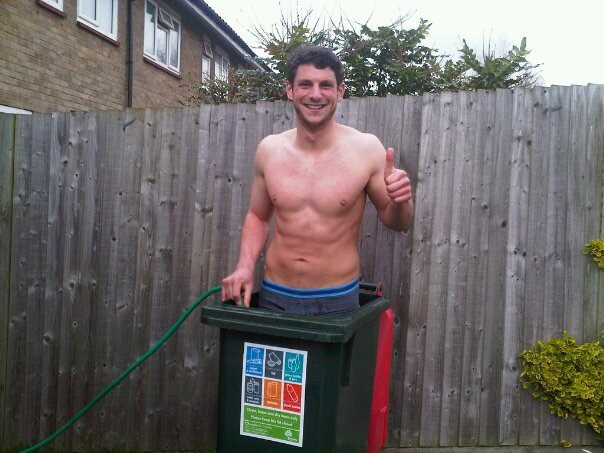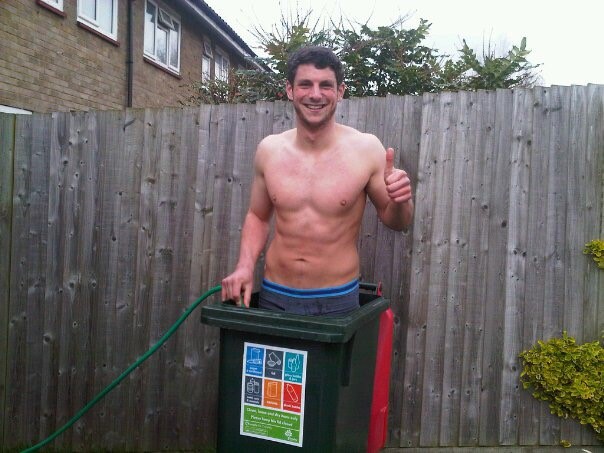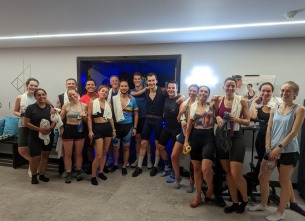
Our Head of HIIT Ben Davie knows his stuff when it comes to exercise regimes and getting the best results. In this post, he talks us through his tips for recovery, so you can bounce back from tough sessions and continue to get fitter and stronger.
When it comes to working out, recovering and resting well are just as vital as the workouts themselves. A big part of my training is centered around HIIT (high intensity interval training) and I tend to change the format by doing cycle classes, bodyweight-based sessions and playing football to keep it interesting. However, all these sessions take their toll on my body, so it's important to fully recover to make sure my body can go again. Here are my top 10 recovery tips:
- Active recovery This is probably one of my favourites and can include a light swim/cycle/jog or brisk walk and dynamic stretch or some yoga. This will help to loosen up tight muscles and promote quicker recovery. For example, the day after a footballer plays a game, he/she will be in the next day doing a cool down session. These sessions can include some LISS (low intensity steady state) cardio work.
- Stretch A post-workout stretch (directly after training) will help to cool the body down and get the muscles back to the state they were in prior to exercising and can also encourage flexibility progressions. Hold each stretch for 30 seconds and remember to breathe into each stretch (as you exhale aim to reach a little further). After an intensive workout, I like to raise my legs against a wall for a minute or so - it helps with blood flow and the clearing of lactic acid.
-
Ice bath/contrast bath therapy The idea of this is to help to constrict blood vessels, in turn flushing out waste products, slowing down physiological processes, and reducing swelling and tissue breakdown. I enjoy a warm to cold shower and feel it helps with recovery - it might be psychological, but it certainly wakes me up in the morning!
-
Sleep
Lack of sleep/proper rest can lead to decreased exercise performance, reduced energy and poorer choices in nutrition. I certainly notice the difference, in terms of energy and productivity, when I have had a good night’s sleep – seven to eight hours is ideal. -
Nutrition
Nutritional guidance will vary based on the goal of the individual, but if you've done an intense workout, a refuel meal is vital. It will help with muscle recovery and to restore glycogen (the fuel reserve that helps keep our bodies running) levels which are depleted from the exercise, particularly from intensive exercise. The optimal window for the post-workout meal is 60-90 minutes after training finishes, and the meal should be a mix of carbs and protein. -
Foam rolling/massage
Foam rolling is also known as myofascial release and can be used pre- or post-workout or on its own. The idea is to help reduce tightness ease out any knots. Find a spot which is uncomfortable (but not unbearable) and gently, slowly roll over. Lacrosse balls are great for getting into tougher areas such as the upper back/traps. Good hydration before and after a massage is important. This one leads on to...
-
Hydration
Use water as your main source of hydration to aid recovery. It will replace fluids lost during exercise. A hydrated body is a more efficient body.
-
Schedule in a ‘down week’
If you have been in a regular, intensive training routine for a prolonged period of time, a week of less strenuous or less exercise in general is important. This week will leave you feeling energised, recharged and ready to get stuck into your training once again. You will be surprised how quickly you can push on and progress after a ‘down week’. This week should include LISS and relaxing activities.
-
Listen to DOMS
DOMS (delayed onset of muscle soreness) occurs 24 to 72 hours after intense exercise and is usually more prominent after a new exercise or working the body in a different way from usual. When you get DOMS, give the muscles a chance to rest before training them again, and keep moving - walking helps!
-
Relax
Allowing some time to mentally unwind from intense exercise is important – reading, listening to music or perhaps even meditation can all be great tools. I’m currently reading Mo Farah’s book ‘Twin Ambitions’ which is an inspirational read, and I also often use the meditation app ‘Calm’ which I would recommend for down time!





COMMENTS (0)
Be the first to comment!
Please login to comment